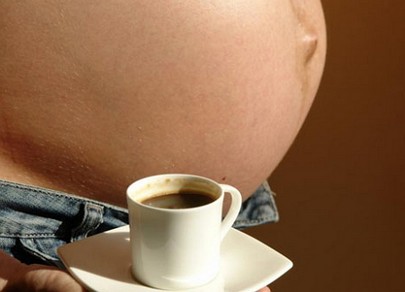Caffeine During Pregnancy

Contents:
- Is Caffeine Bad During Pregnancy
- Effect of Caffeine on Pregnancy and Lactation Process
- Safe Caffeine Dosage
Is Caffeine Bad During Pregnancy
The concentration of caffeine depends on the kind of food, beverage or medical products, and the method of product manufacture.
Caffeine is mostly found in the following:
- coffee and coffee-containing food (ice-cream, yogurt, candies with coffee filling, pastry);
- tea (black and green, mate, guarana as any tea ingredient);
- chocolate and any chocolate-based food (chocolate syrup, cocoa, candies);
- alcohol-free beverages, energy drinks and low-alcohol beverages;
- antalgesic medicinal products;
- pharmaceutical drug for chill, flu, migraine, stimulators.
Any product of herbal origin should be checked for the caffeine content. As a rule, it is taped on the package. The caffeine information regarding medical products is shown in instructions for medical use, in insert papers and on the package. Any pharmaceutical drug taken by any pregnant should be advised with the doctor.
Effect of Caffeine on Pregnancy and Lactation Process
People are different and so is their tolerance to caffeine. The pregnancy enhances the sensitization and the caffeine increases exitability, the cardiac rate, higher blood rate and higher volume of urine. In certain people, caffeine may cause digestion disorders, nervousl system disorders and sleeping problems.
When taken during pregnancy, caffeine affects the mother’s and baby’s bodies. It contributes to decrease the blood flow to placenta which is unfavorable for the baby. When penetrating placenta, caffeine is found in the fetus body.
Lots of studies have been conducted to evaluate the dependence of miscarriage on caffeine. The results were contradicting, though. Some studies reported that 200 mg of caffeine or more per day enhance the risk of miscarriage as twice as much as compared with pregnant women who do no consume caffeine. Other studies failed to reveal such risk when 200 to 350 mg caffeine is consumed per day. Nevertheless, 500 mg of caffeine per day is the most likely hazard as per any study. Up to date, the allowed rate is less than 200 mg per day.
The risk of still birth is the other risk of caffeine consumption during pregnancy. In 2003, by the results of the Danish study, 4 to 7 cups of coffee consumed per day slightly increased the risk of dead birth. 8 cups and more increase this risk twice as much. Though, researches are based on coffee consumption only.
Conflicting opinions were developed on the impact caused by caffeine on the height of a child in pregnancy. There are some data that consumption of 100 mg caffeine per day may cause some decrease in the child’s weight at birth. However, other researches showed that 300 mg of caffeine consumed by the mother-to-be per day is risky. There are studies, however, that did not report on any dependence of the child development on caffeine consumption during pregnancy. They all came to the opinion that caffeine probably affects the weight of child at birth at a too low level.
Other studies say that the consumption of over 500 mg of caffeine a day by a pregnant woman may increase the risk of higher heartbeat, higher respiration frequency and lesser sleep in a child in first days of birth.
Safe Caffeine Dosage
Most specialists believe that moderate caffeine consumption during pregnancy is quite safe for a child. 150-250 mg of caffeine per day is taken as the moderate dosage of caffeine. However, it makes no sense to abuse this psychomotor stimulator (this is how the caffeine is interpreted from the medical point of view).